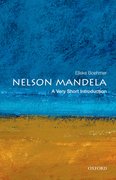Drenched in words: LGBTQ poets from US history
John F. Kennedy stated that “When power narrows the areas of man’s concern, poetry reminds him of the richness and diversity of his existence. When power corrupts, poetry cleanses.” Poetry attempts to reclaim awareness of the world through language, an entirely human construct that can only be pushed so far but one that is pushed repeatedly and necessarily in order to articulate what it means to be human. Throughout American history, LGBTQ poets have explored myriad themes including identity, sexuality, and historical and political landscapes, in order to comprehend and chronicle human experience.












